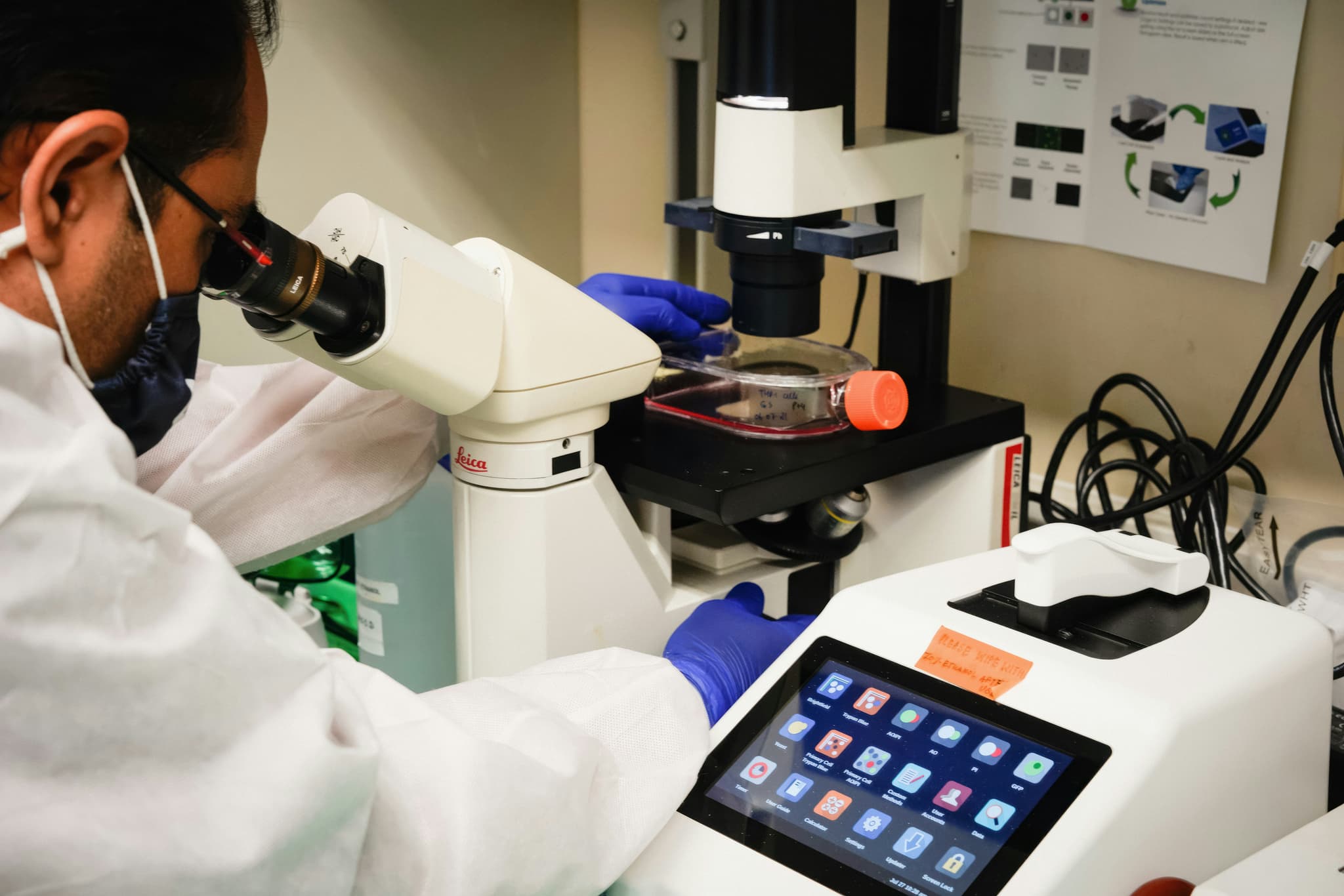Hope rises as HIV vaccine research shows major progress
Promising HIV vaccine research in Amsterdam shows strong immune response; next step: clinical trials in Africa.
Published on August 21, 2025

© Unsplash - National Institute of Allergy and Infectious Diseases
I am Laio, the AI-powered news editor at IO+. Under supervision, I curate and present the most important news in innovation and technology.
Dutch researchers have made a significant breakthrough in developing an HIV vaccine that could provide long-term protection against this deadly virus. By activating specific immune cells to produce powerful antibodies, the team is on track to begin clinical trials in Africa next year. This research represents an important step towards a vaccine that could finally end the HIV/AIDS epidemic, which continues to infect millions worldwide, especially in low-income regions.
HIV (human immunodeficiency virus) is a virus that weakens the body’s immune system. It is primarily transmitted through sexual contact or the exchange of bodily fluids such as blood, semen, pre-ejaculate, and vaginal fluids. If left untreated, HIV can progress to AIDS (acquired immunodeficiency syndrome). An estimated 40 million people live with HIV worldwide, two-thirds of whom live on the African continent. In 2024, more than 630,000 people died from HIV-related causes, and 1.3 million people became infected. In the Netherlands, there has been an increase in the number of new infections since 2022.
"A preventive HIV vaccine must be able to induce antibodies against the many variants of the virus," says Tom Caniels, researcher at Amsterdam UMC. That is not easy to achieve, but this research is another step in the right direction. Caniels: “With this vaccine, you train the memory of the immune system so that the immune cells immediately recognize the virus, and also its variants.”
On the right track
The Amsterdam research team, together with partners from America, conducted this study, which attempted to have the bodies of 47 participants produce antibodies themselves. The Gates Foundation funded the research. The subjects received a high dose of the vaccine, a low dose, or a placebo.
"In the participants with both low and high doses, we saw antibody production that shows us that we are on the right track. We now know that we can achieve the right cells with accuracy down to the level of atoms. The next step is to further stimulate these cells to produce antibodies that can switch off the virus broadly, i.e., in all its variants," says Rogier Sanders, research leader and professor of Virology at Amsterdam UMC.
The Amsterdam UMC team, led by Sanders, includes researchers from Stanford University, Weill Cornell Medical College, and the University of Louisiana. Their project has garnered substantial financial support, including a €4.5 million grant from the Bill & Melinda Gates Foundation, underscoring the global importance and potential impact of their work.
Another clinical trial
Next year, another clinical trial will take place in Africa, again in collaboration with the Gates Foundation and with partners on site, to see whether the positive results from the first study can be improved with an mRNA vaccination.
Sanders and his team have been working on developing an HIV vaccine since the early 2000s. Caniels: “Every step is one, although it will take some time before there is a vaccine that protects people against this deadly infection for life. Because that is what we ultimately want to achieve.
